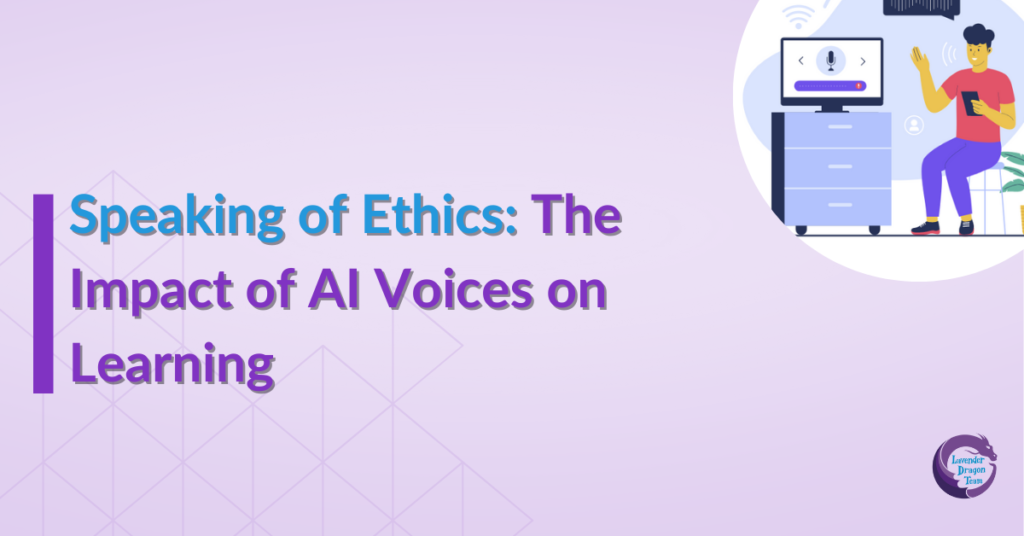In this blog, we invite you on an intriguing exploration into the evolution of artificial intelligence (AI) voices within the field of course creation. We will also spotlight the intricate ethical implications that accompany this technological advancement. So, let’s learn the complexities and marvels of AI voices in course creation, this way we can see the impact they have on the way we learn, teach, and connect in a digitally evolving world.

Progress of AI Voices in Course Creation
Gone are the days when AI voices sounded like a robot having a bad day. Now, we’re talking about buttery-smooth, almost human-like voices taking the eLearning world by storm. But how did we get here, and why does it matter?
The Progress: From Monotone to Emotion
The journey from the robotic monotones of early text-to-speech (TTS) systems to today’s dynamic and nuanced AI voice is nothing short of remarkable. Advances in deep learning and natural language processing have enabled AI to not only mimic human speech patterns but also infuse them with a degree of emotion and intonation that was once deemed impossible.
The Game Changer for Course Creators
For course creators, this evolution means breaking down barriers like never before. AI voices offer these:
- Suddenly, creating courses in multiple languages or updating content regularly doesn’t seem so daunting.
- With AI voice, courses become more accessible to individuals with disabilities, bridging a crucial gap in learning.
- Reducing the need for professional voice actors makes high-quality course creation more attainable for everyone.
Ethical Considerations: Navigating the New Frontier
With great power comes great responsibility, and the use of AI voices in learning is no exception. Here are some ethical quandaries we’re facing:
- Authenticity and Connection
How do we maintain the authentic connection between instructor and learner when a machine is the medium? While AI voice can emulate human speech, the subtleties of an instructor’s passion, empathy, and intuition are harder to replicate. A voice actor would have an easier time emulating those subtleties.
- Privacy and Voice Cloning
Voice cloning technology is both awe-inspiring and slightly terrifying. Ethical questions arise about consent and the potential misuse of someone’s digital voice likeness. It’s a reminder of the need for robust regulations and ethical guidelines in the use of AI.
- Job Displacement Concerns
The elephant in the room: Will AI voices take jobs away from human voice actors and instructors? It’s a valid concern, highlighting the importance of finding a balance that leverages AI’s benefits without sidelining human talent.
The Way Forward: Ethics in AI Voices Usage
So, how do we tread this new terrain ethically? Here are some guiding principles:
- Being upfront about the use of AI voices in courses is crucial. Let learners know what they’re interacting with.
- For voice cloning, obtaining explicit consent from the voice donor is non-negotiable.
- Use AI voices to enhance learning content, not to replace the invaluable human elements of teaching and voice acting. Complement, not replace.
Final Thoughts
The integration of AI voices in course creation is a testament to human ingenuity, opening doors to innovative ways of learning and teaching. As we venture into this new world, let’s embrace the possibilities while staying mindful of the ethical dimensions. By doing so, we can ensure that AI voices enrich the learning experience in a way that’s respectful, ethical, and ultimately, human-centered.
There you have it! The landscape of AI voices in course creation is as exciting as it is complex. As we continue to explore this frontier, keeping the conversation about ethics alive is key to using AI’s power responsibly.

